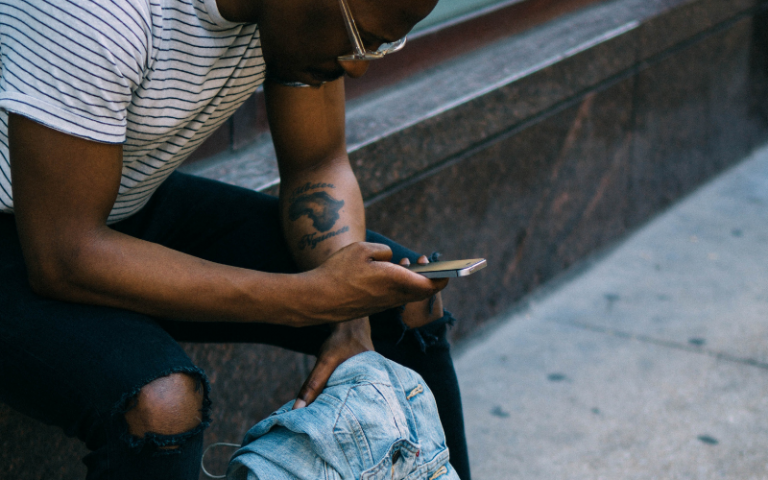Why you're probably doomscrolling... and how to stop
11 February 2021
Almost a year into the COVID-19 pandemic, more of our lives are lived on our phones than perhaps ever before. And in times of so much uncertainty and fear, doomscrolling can escalate. Find out about what this is, why you’re probably doing it, and how to get out of the habit.

What is doomscrolling?
Doomscrolling is compulsive scrolling through bad news on social media. 2020 was an intense year – filled with a pandemic, civil unrest across the world, racial injustice and natural disasters - just to name a few. It starts out with a desire to be informed and understand what’s going on, but can soon translate into a more urgent need to scroll. This can transform into doomscrolling, constantly and compulsively jumping from bad news story to bad news story.
In this never-ending pandemic, our phones are an increasingly important way to engage with the world outside our four walls, but this has quickly led to dramatic increases in screen use for many. It also turns out that our brains are better at remembering negative events and emotions, creating a perfect storm of negative news and a compulsion to continue scrolling for more.
Why does it matter?
Well, if it wasn’t clear already, it turns out doomscrolling isn’t great for our mental health. Social media already has a negative impact on our mental health, as it can lead many to feel envy which can lead to anxiety, and/or depression. This is most likely when social media includes emotional connection. Doomscrolling thrives off emotional connection – and some news stories are so upsetting they can leave us drained, exhausted and shocked. Repeat this 5 times a day and it’s a recipe for disaster.
Some side effects of doomscrolling include:
- Stress
- Anxiety
- Sleep trouble
- Depression
- Sense of isolation
Okay, doomscrolling is bad. How do I stop?
The first step is to notice if you’re doomscrolling and recognise and acknowledge it. Do you check the news first thing when you wake up, last thing before going to sleep and/or routinely throughout the day to see what the state of the country, world or death rate is? Ask yourself if finding out this information makes you feel stressed, drained or exhausted rather than empowered, informed or knowledgeable. If the answers to those questions are yes, sounds like it could be doomscrolling.
So, it’s clear that doomscrolling isn’t a particularly healthy habit, but let’s be realistic. It is important to stay up to date with current events - but try to limit your consumption. On many phones, you can impose a limit on the time you can spend on a certain app. Try imposing limits on your social media apps and see how you get on. It might be hard at first, so try gradually reducing the time limit. The main thing is to be mindful and aware of your consumption, and to monitor how you are feeling.
Human connection is usually the antidote to many things, and this is no exception. Talking about what’s going on is important, so try to do this actively by engaging in meaningful conversations with others instead of passively scrolling your Twitter feed. Schedule in a phonecall with a loved one, chat with one of your coursemates or even go on a socially distanced scroll to have a proper discussion.
It’s also important to take time out. Whether you do this through meditation, exercise, reading a book, speaking to a friend, doing something creative – great! Do whatever you need to look after yourself.
If you need more support, get in touch with UCL Student Support and Wellbeing.
 Close
Close

